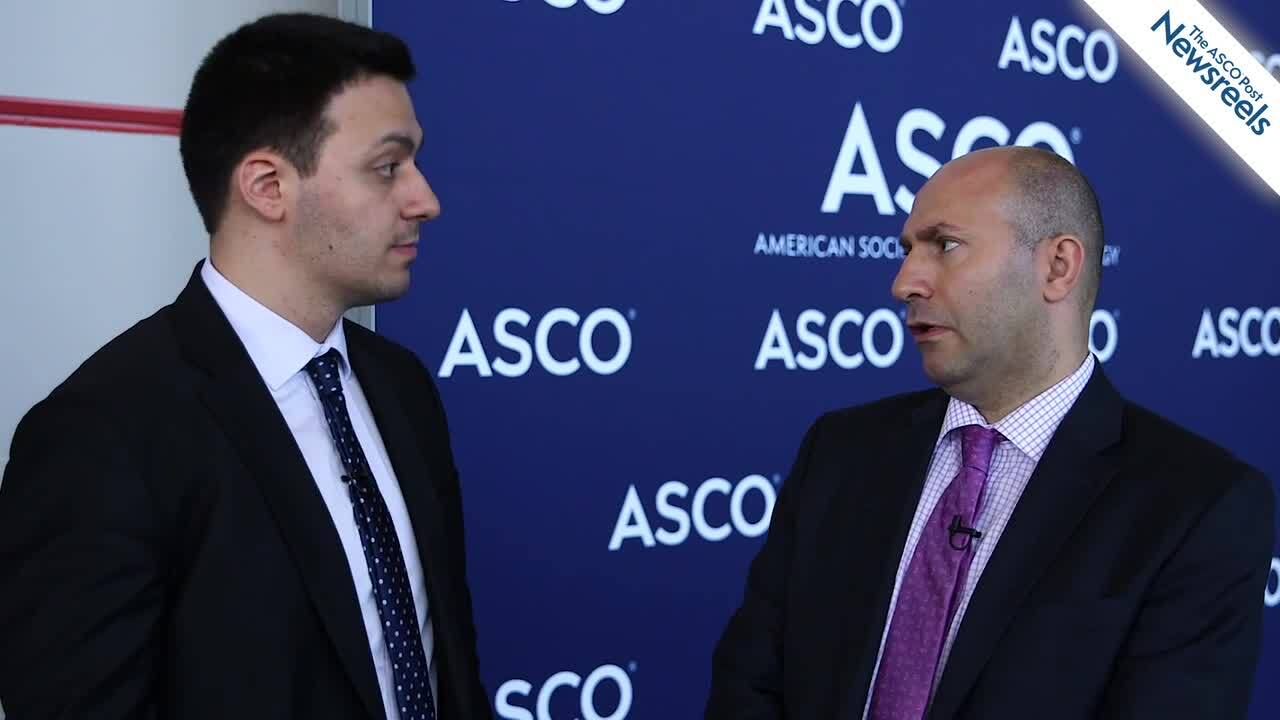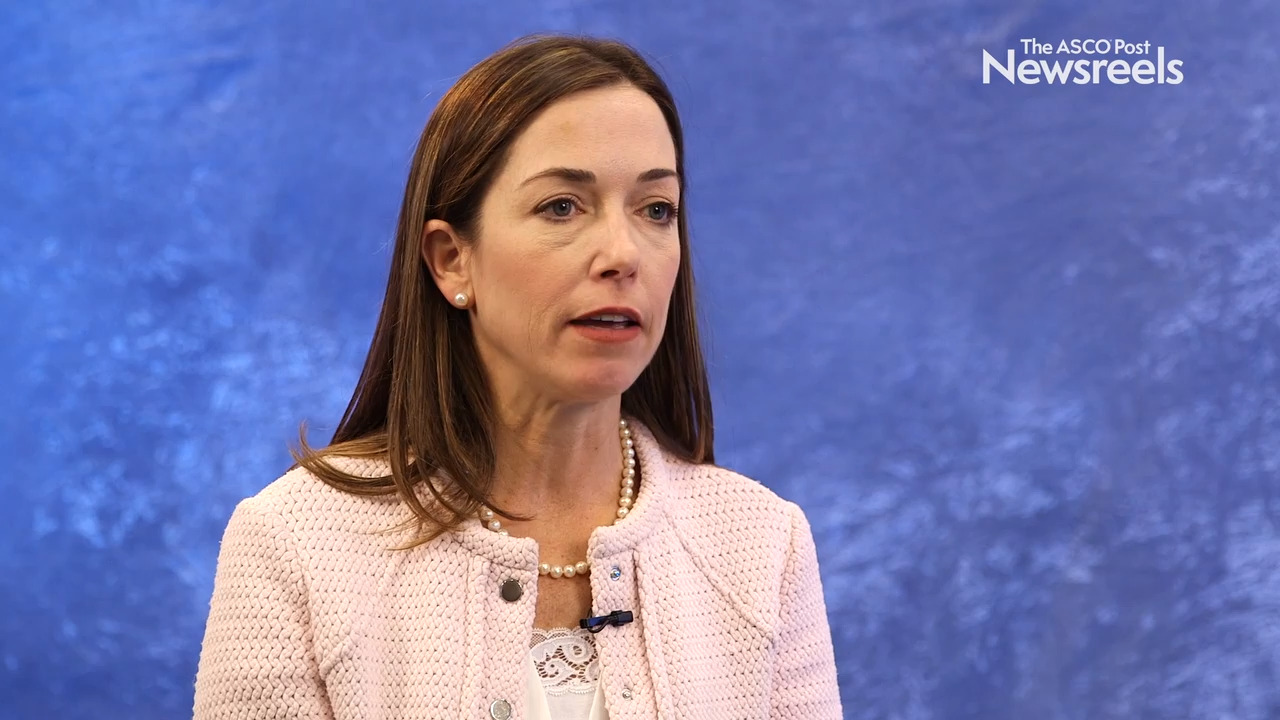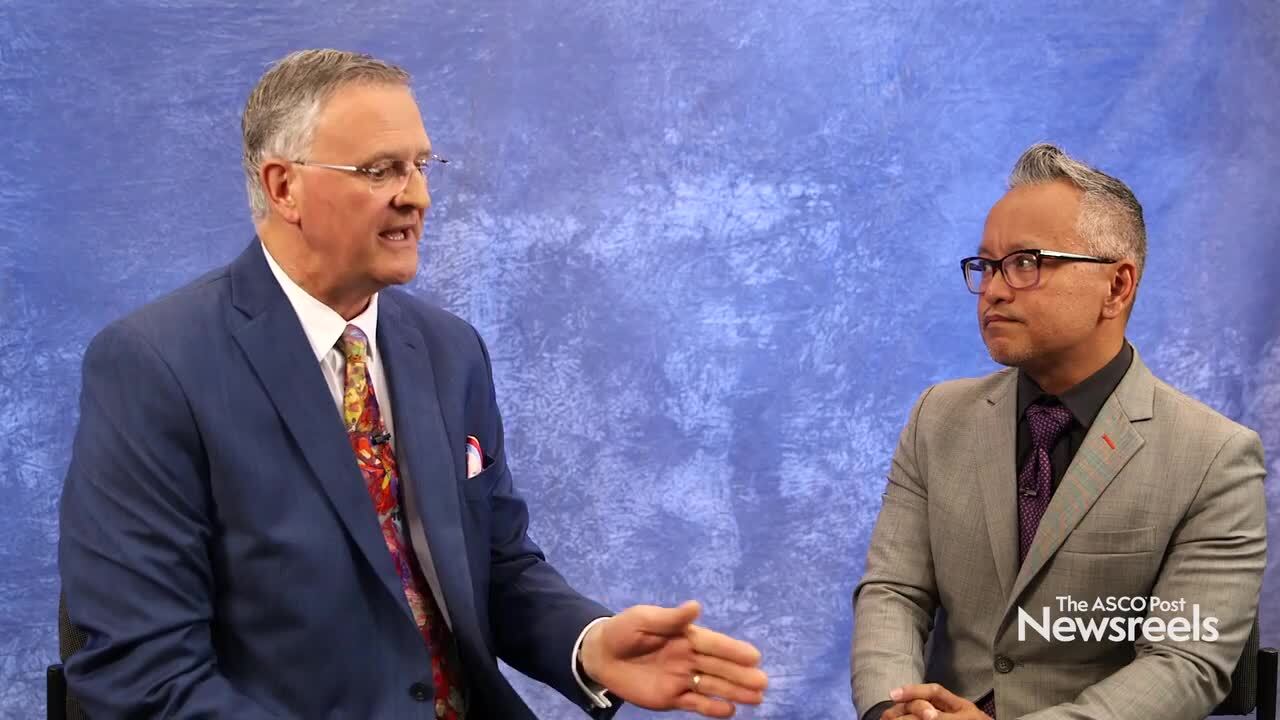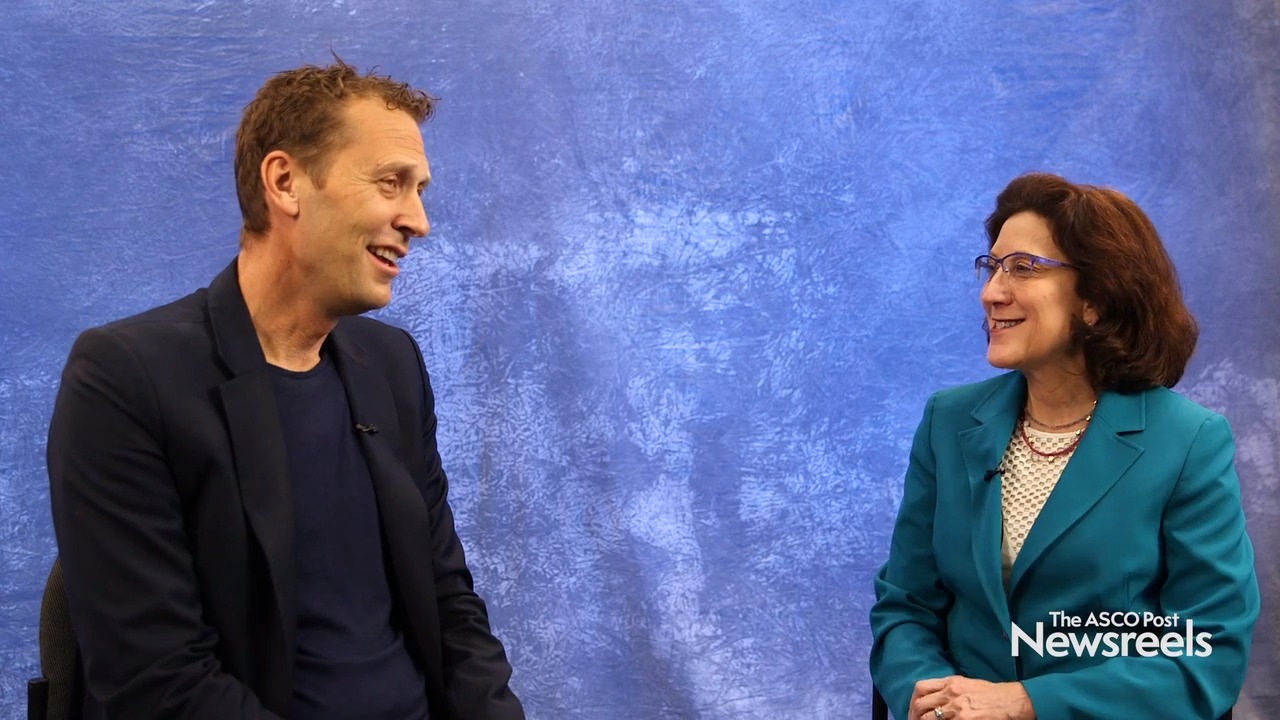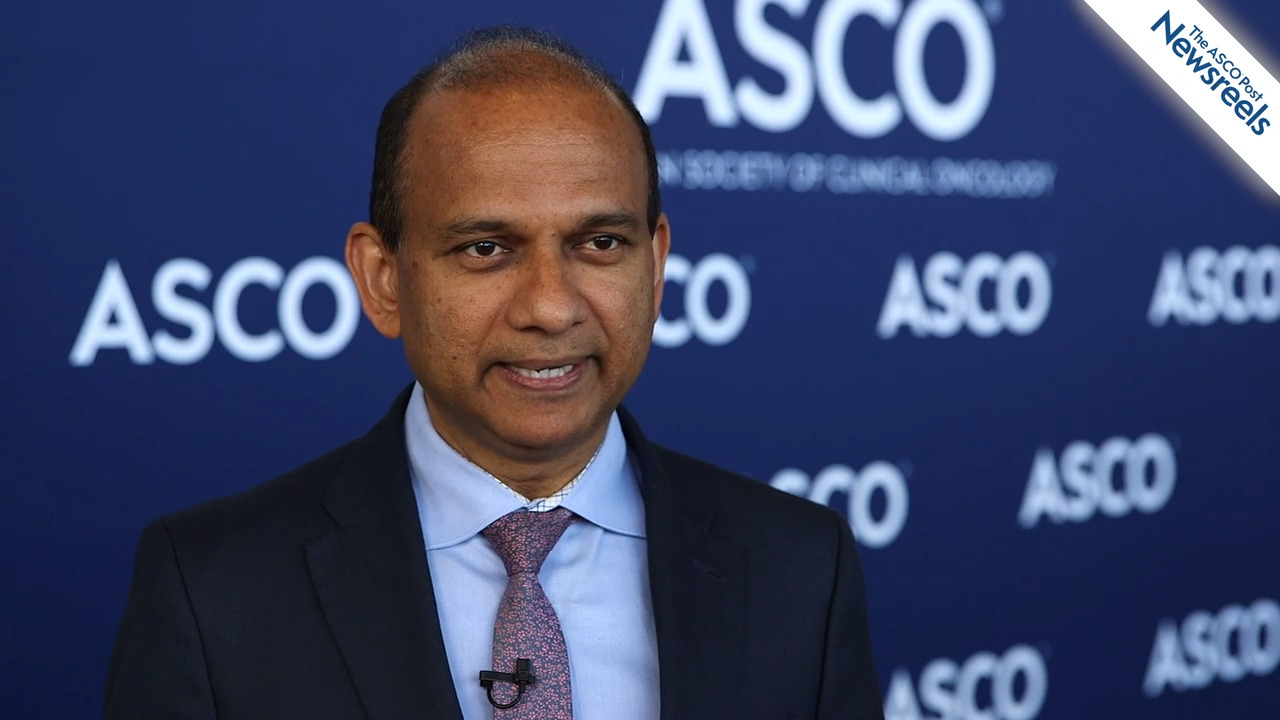Gilberto Lopes, MD, MBA, on the RELAY Trial in Metastatic NSCLC: Erlotinib and Ramucirumab in EGFR Mutant–Positive Disease
2019 ASCO Annual Meeting
Gilberto Lopes, MD, MBA, of the Sylvester Comprehensive Cancer Center at the University of Miami, offers commentary on phase III findings from the RELAY study, which showed that erlotinib plus ramucirumab led to superior progression-free survival in previously untreated patients with EGFR mutant–positive NSCLC (Abstract 9000).
Toni K. Choueiri, MD, and Ziad Bakouny, MD, both of Dana-Farber Cancer Institute, discuss a retrospective review of genomically profiled patients with sarcomatoid/rhabdoid renal cell cancer who were found to have better outcomes with immune checkpoint inhibitors and to harbor mutations associated with poor prognosis (Abstract 4514).
Sara A. Hurvitz, MD, of the David Geffen School of Medicine, University of California Los Angeles, discusses 3-year outcomes from the first phase III study to test a non-conventional regimen for the neoadjuvant and adjuvant treatment of HER2-positive breast cancer (Abstract 500).
Don S. Dizon, MD, of the Lifespan Cancer Institute, and Richard T. Penson, MD, of Massachusetts General Hospital Cancer Center, discuss phase III study findings on the PARP inhibitor olaparib, which showed a significantly higher objective response rate vs nonplatinum chemotherapy for patients with ovarian cancer who relapsed, are platinum-sensitive, and have BRCA-mutant disease (Abstract 5506).
Hope S. Rugo, MD, of the University of California, San Francisco, and Peter Schmid, MD, PhD, of Barts Cancer Institute, Queen Mary University of London, discuss ongoing trials of immunotherapy for early triple-negative breast cancer; immunotherapy in other disease subtypes such as estrogen receptor–positive and HER2-positive; and checkpoint inhibition in PD-L1–negative disease.
Jame Abraham, MD, of the Cleveland Clinic, provides commentary on the NALA study findings on neratinib plus capecitabine vs lapatinib plus capecitabine in patients previously treated with HER2-positive metastatic breast cancer (Abstract 1002).
